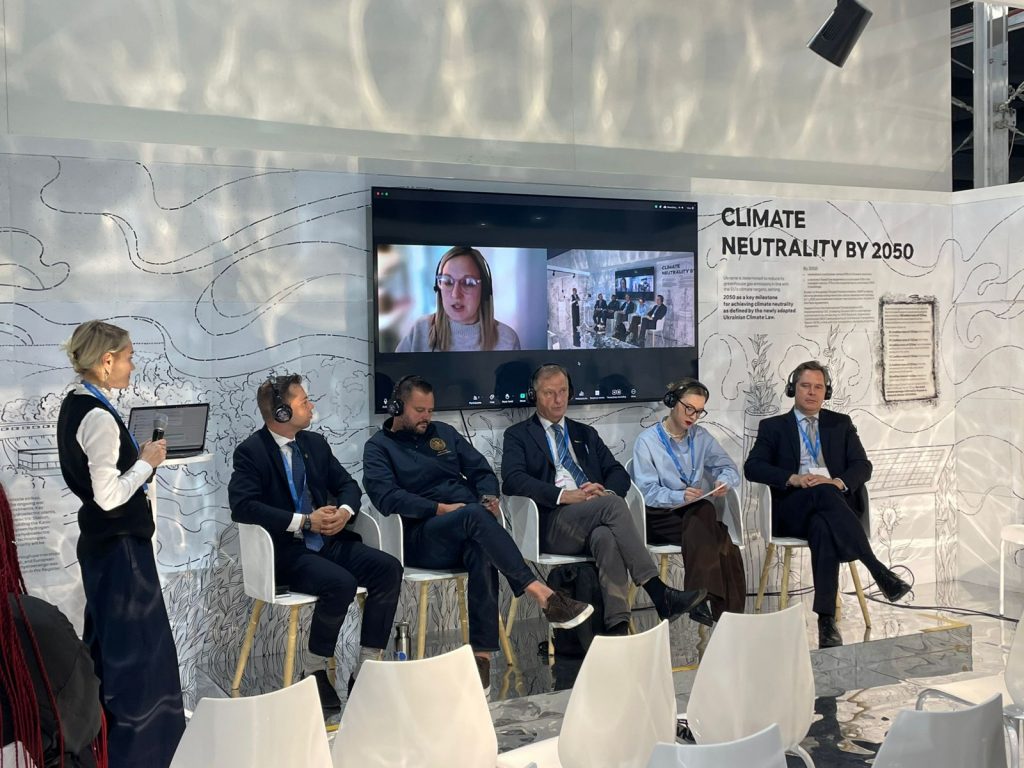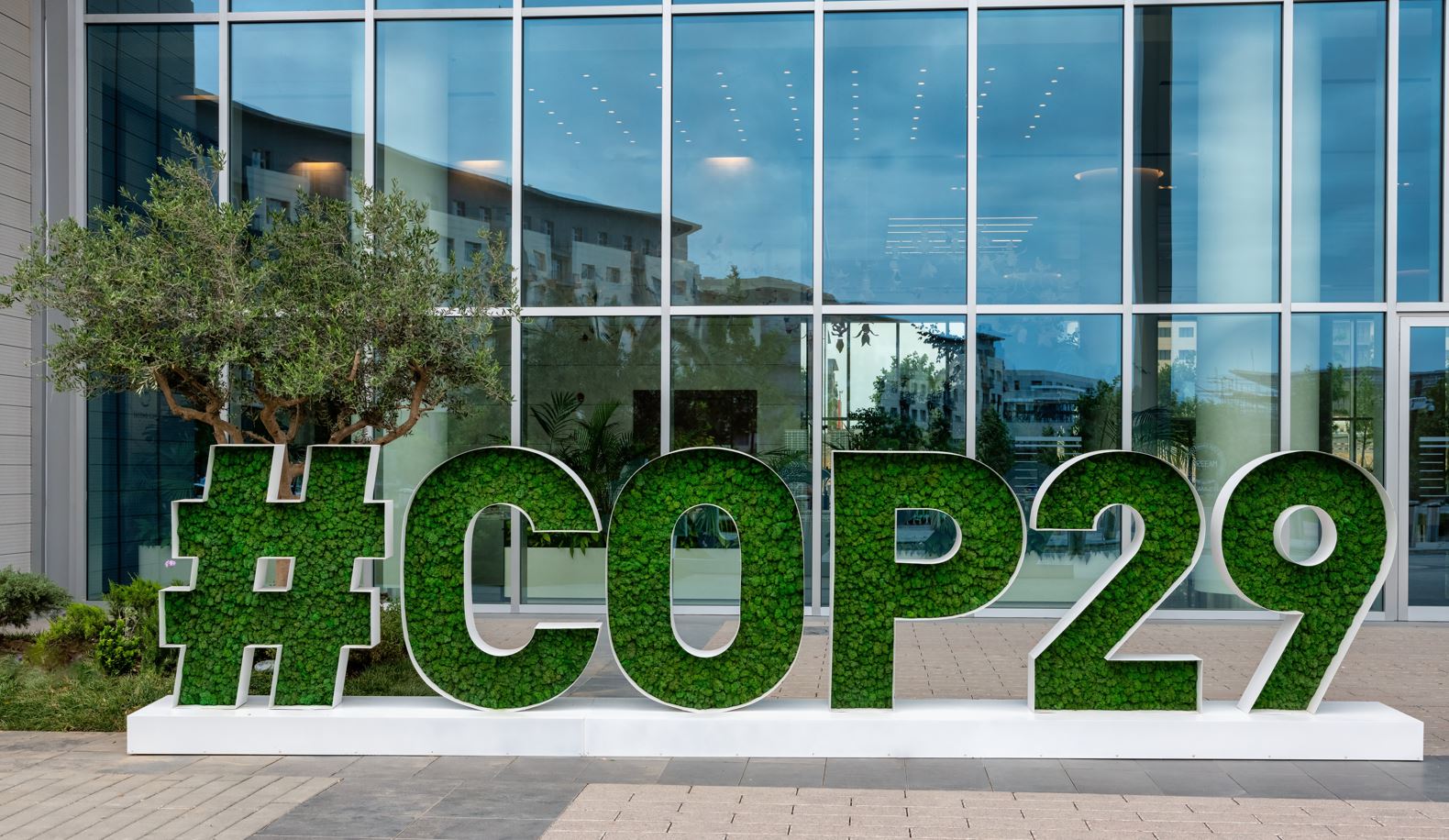Dr Naomi Rintoul-Hynes discusses her involvement in an expert panel at the United Nations Climate Change Conference (COP29) in Baku, Azerbaijan this week.
The panel discussion, organised by the Ukrainian Climate Office, took place exactly 1,000 days after Russia invaded Ukraine. The talks centred around the theme of ‘academia at the forefront: driving Ukraine’s climate action and sustainable development’.
During the panel, we discussed the role of academia to improve the skills of an individual student, but also to bring about benefits to the wider society, both locally and internationally. It is essential that universities continue to conduct research on key environmental issues, and that academics involve students in their research at all levels.
Evidence-based research is not just about developing our understanding of an issue: it needs to be presented in a format that is accessible to those who can make positive changes, such as policymakers, and not just to the academic community. To do this, researchers need to involve the local community to develop solutions to the big issues, such as the direct and indirect effects of warfare on the local environment and the global climate.
Although Ukraine has met past obligations for emissions reporting and reductions, it still had a very carbon-intensive economy prior to the 2022 invasion by Russia, with the energy, industry and agriculture sectors accounting for nearly three quarters of emissions in 2021.
We already know that Ukraine is highly vulnerable to the effects of the climate crisis through flooding, wildfires, heatwaves and aridisation of the land, but there is the added component of environment damage and emission from warfare. So far, the war has resulted in at least 175 million tonnes of greenhouse gas emissions – equivalent to the annual emissions of some entire countries, such as Netherlands. However, researchers still know relatively little about the environmental effects of war.

I am currently working with colleagues at Princeton University and the National Academy of the Sciences of Ukraine to measure the effects of environmental pollution from ammunition, munitions, explosives, vehicle parts and military infrastructure on ecosystems and human health. My research relies on collaboration with local researchers in Ukraine to collect environmental samples that are analysed in the state-of-the-art laboratories at CCCU and provide accurate and up-to-date information on the intensity of conflict at each sampling location.
Dr Naomi Rintoul-Hynes is Senior Lecturer in Soil Science and Environmental Management.
To find out more about the project, and get involved, please contact Dr Rintoul-Hynes directly (naomi.rintoul-hynes@canterbury.ac.uk).
 Expert comment
Expert comment Emma Grafton-Williams
Emma Grafton-Williams 2189
2189


